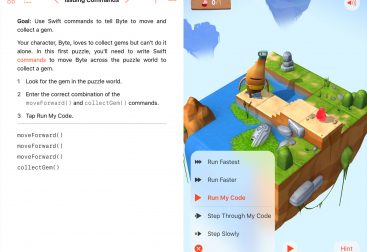There is a certain misconception that coding can only be learned in front of a computer. In reality, the best developers tend to be the ones who can write code on a piece of paper and then “compute” it in their mind.
There are lots of new languages available to pick and choose from Swift / Java to code a mobile app to JavaScript for websites and so on. At the base of all of them, the logical steps are actually the same however the way you will express them might look different depending on the syntax. Think of writing “Thank you” in say Romanian, Chinese and Arabic and how different it looks and sounds and yet it has the same meaning.
The magical trick is to not only be able to speak the computer’s language, but also to think like it. The most common fundamentals you will find in any language are conditionals; this means that if something happens then there is a choice to do something or do nothing, and loops; to keep doing something until the requirements are met. The entire software world is basically built upon these basic concepts, so once you’ve grasped them, you’re good to go.
But what you’re aiming for, is for these concepts to become second nature. You want to learn to be able to anticipate a particular move before it happens, analyse the potential consequences, and therefore prepare accordingly. For example; when you code a Login form, say for a social network, you have to think of all possible scenarios that a user might try; empty fields, only username provided, only password provided, both provided but both wrong, and so on. So you need to have an appropriate response to any of these scenarios ready.
In my school, my computer science teacher used to give us all the time algorithms to write in pseudocode. Pseudocode is usually short sentences, usually in your native language that you can use to explain the steps you need to implement a particular feature in your app without using a particular language. It was one of the most frustrating tasks I have ever done as at that time I already knew how to code and I thrived on seeing the result of my coding in real time, however, it shaped my way of thinking and it made me a better programmer in the end.
If you are ready to tackle the coding world but you don’t want to use a computer, I have gathered some playful resources that teach you the logical thinking required that I will be posting over the next 2 weeks. With these games and activities, you can easily pick up coding without even noticing.
Coming soon:
- Part 2: 7 “Programming” in board games – learn to think like a coder while having fun as a family
- Part 3: Toys you didn’t know teach you coding


